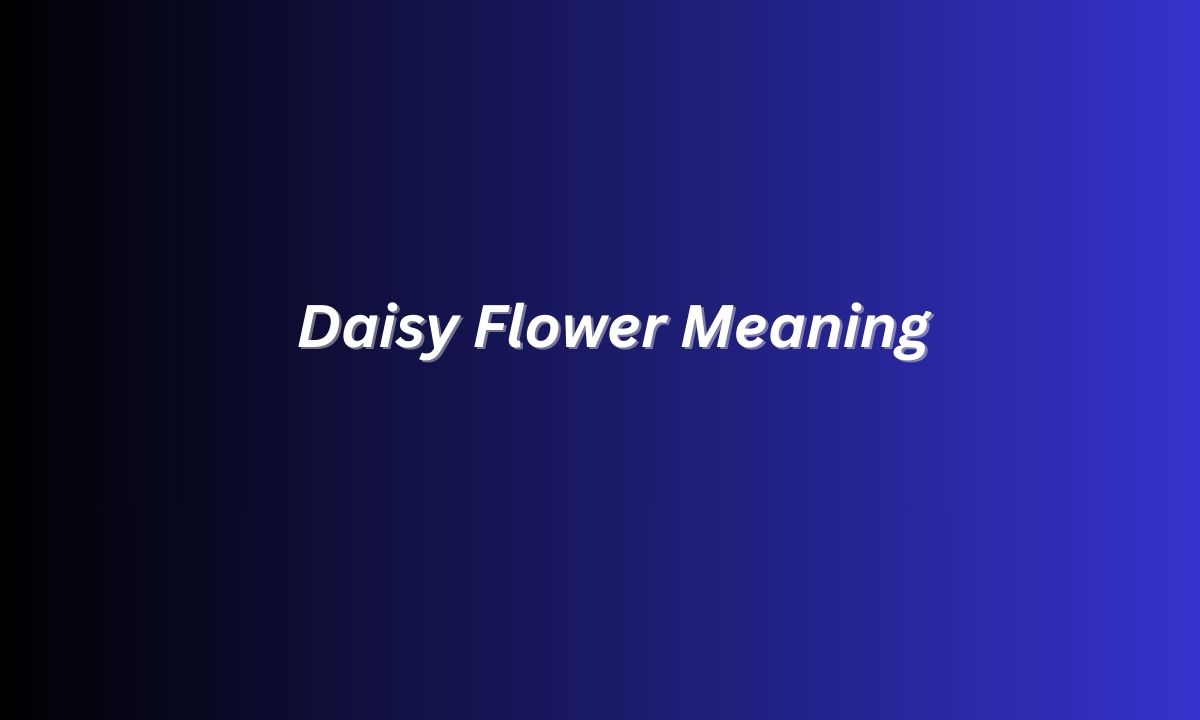The phrase “daisy flower meaning” captures more than just the beauty of a simple bloom. Daisies are often associated with purity, innocence, and new beginnings, and their symbolism runs deeply across cultures and languages. Understanding this phrase allows us to appreciate both literal and figurative interpretations.
In literature and conversation, the daisy flower meaning reflects kindness, sincerity, and freshness. It conveys emotions subtly while maintaining a gentle tone. When people use the word daisy symbolically, they often suggest honesty, youthful energy, or even emotional healing through natural beauty.
Additionally, exploring the daisy flower meaning provides a chance to see how language and symbolism merge. Words, like flowers, carry delicate messages depending on tone, culture, and context. This article dives into the symbolism, explores related expressions, and examines polite and casual alternatives to enrich communication.
Daisy Flower Meaning in Language and Symbolism
The daisy has a long history in literature, art, and culture. In many traditions, the daisy represents simplicity and loyalty. Its white petals suggest clarity and purity, while the yellow center symbolizes warmth and energy. These meanings have been expressed in poetry, greetings, and even conversational English for centuries.
When someone refers to the daisy flower meaning, they often describe the idea of something wholesome and natural. This is not limited to flowers themselves; rather, it can be applied metaphorically in text or speech to imply honesty, warmth, or heartfelt wishes.
The daisy is also tied to resilience. Despite being a delicate flower, it grows in tough conditions, symbolizing hope and the strength to flourish in adversity. Thus, its meaning resonates not only in natural imagery but also in how people express optimism or encouragement.
Exploring the Hiatus Meaning of “Daisy Flower Meaning”
The word hiatus itself refers to a pause, break, or gap. When paired with daisy flower meaning, the hiatus can be viewed as a metaphor for a thoughtful pause in communication—when a person chooses words carefully, often leaning toward gentler expressions like “daisy.”
In written or spoken English, the hiatus meaning reflects the act of stepping back to insert a softer, more symbolic phrase instead of a direct one. Using daisy flower meaning provides such a moment, where literal flowers transform into expressions of goodwill, comfort, or kindness.
Recognizing this allows individuals to explore multiple alternatives. Just as daisies symbolize purity, pauses in language—hiatus moments—allow conversations to bloom with sincerity and gentleness, especially when expressing wishes or polite sentiments.
Alternatives to “Hiatus Meaning” in Context
When discussing language, it is often helpful to consider alternatives that can replace or expand on a phrase like hiatus meaning. Some alternatives include:
- Pause in speech – Used in casual conversations to indicate a short break.
- Interruption – Often formal, describing a disruption in flow.
- Break in continuity – Professional tone, applied in academic or technical contexts.
- Interlude – A softer, artistic alternative, suggesting a poetic pause.
- Interval – Neutral and widely accepted in both casual and professional communication.
- Rest period – Applied in everyday or workplace contexts.
- Gap in dialogue – Specifically for conversations or discussions.
- Temporary suspension – More formal, applied in legal or organizational settings.
- Time-out – Informal and casual, often used in everyday language.
- Breather – Relaxed and conversational, suited for informal exchanges.
- Recess – Professional and academic, often related to school or official pauses.
- Intermission – Polite, often used in cultural or artistic references.
- Pause for reflection – Formal and thoughtful, common in professional or motivational speech.
- Break in flow – Simple and neutral, suited for general use.
- Momentary stop – Casual and straightforward alternative.
Each of these alternatives carries nuances of tone, making them suitable for different audiences or situations.
15 Examples of Usage in Conversations
Below are fifteen well-crafted examples showing how daisy flower meaning and hiatus alternatives can enrich English communication.
- “She sent me daisies, a simple reminder of hope and honesty.”
- “In literature, the daisy flower meaning often conveys purity and new beginnings.”
- “Let’s take a short pause in speech, like a hiatus, before we continue.”
- “The daisy represents resilience—growing even in harsh conditions.”
- “During our interlude, I thought about the daisy flower meaning and its freshness.”
- “He left a daisy on my desk, symbolizing kindness without words.”
- “We’ll have a short intermission; think of it as a daisy-like pause—gentle and refreshing.”
- “Her smile was like a daisy, simple yet uplifting.”
- “This temporary suspension in our plan gives us time to reflect, much like a pause in bloom.”
- “The daisy flower meaning in text often softens a message, making it polite.”
- “Let’s take a breather, a little daisy moment in our busy day.”
- “The gap in dialogue felt natural, like the space around a daisy’s petals.”
- “The daisy is a symbol of loyalty and honesty, much like words chosen in sincerity.”
- “We can call this break in flow an interval, as refreshing as daisies in spring.”
- “She used the daisy flower meaning to convey gentle well wishes in her letter.”
These examples highlight how symbolic language can soften communication while keeping the tone respectful, professional, or casual depending on the setting.
Choosing the Best Expression
When choosing between daisy flower meaning and alternatives to hiatus meaning, tone and audience should guide your decision. In professional contexts, words like interval or temporary suspension work best. In casual exchanges, breather or time-out may feel more natural.
Symbolism adds depth to language. Using daisy flower meaning in speech or writing conveys kindness and freshness, while alternatives to hiatus meaning provide flexibility in expression. The key is selecting terms that align with sincerity, tone, and situational appropriateness.
Conclusion
The daisy flower meaning is far more than botanical; it carries cultural, emotional, and symbolic weight. Whether in literature, text, or daily speech, it conveys honesty, purity, and hope. Paired with the concept of hiatus meaning, it demonstrates the power of pauses and alternatives in communication.
By learning both the symbolism of daisies and the varied expressions for breaks in dialogue, speakers and writers enrich their ability to connect. Choosing the right phrase ensures communication feels thoughtful, whether formal, polite, or casual. Like daisies, words bloom when chosen with care.

Elizabeth crafts heartfelt messages for every occasion—anniversary wishes, love notes, prayers, thank-yous, and inspirational greetings—bringing warmth, joy, and connection to your special moments.










